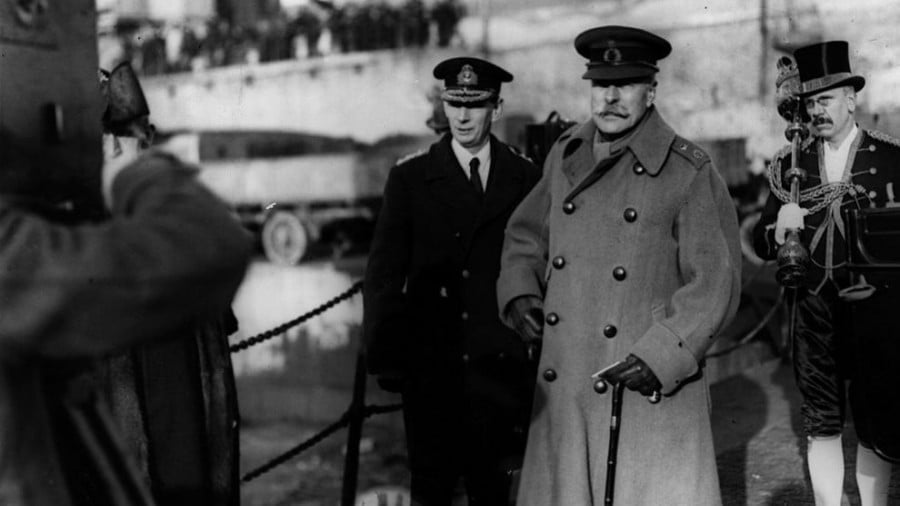Boris Johnson is as Incompetent as General Haig at the Somme
On 1 July 1916, the British Army attacked the German front line on the Somme in an ill-planned and over-ambitious offensive. Advancing soldiers were slaughtered by machine guns and artillery fire as they tried to struggle through unbroken barbed wire. The battle was to go on for 141 days, but on the first day alone the British suffered 57,470 casualties, including 19,240 dead.
The man primarily responsible for the greatest disaster in British military history was General Sir Douglas Haig, whose over-optimistic planning under-estimated enemy strength and ignored lessons to be drawn from failures in earlier battles. Inspired by wishful thinking, Haig assured sceptical subordinates that the British would soon break the German line and he had five cavalry divisions waiting to exploit their victory.
A little over a century later, Boris Johnson has been facing the equivalent of a war in combating the Covid-19 epidemic. As with Haig at the Somme, he has shown over-confidence and poor judgement during the battle, leading to Britain suffering a greater loss of life than it might have under a more competent leader.
Nobody knows how many more British soldiers would have survived if Haig had not been the ultimate decision maker at the Somme, but in Johnson’s case one can be more precise about his lethal influence. On 29 May, the former chief scientific adviser to the government, Sir David King, said that, “40,000 excess deaths could have been avoided if the government had reacted responsibly”. It locked down late, lifted restrictions too early, haphazardly ignored expert advice, and failed to learn from mistakes made during the first wave of the epidemic in the spring. It thereby guaranteed that there would be a second wave of infection, as bad or worse than anything experienced earlier in the year.
“I don’t have sympathy for the government making the same mistake twice,” says a scientist on the Sage advisory committee, quoted in a report by The Sunday Times Insight team. “We told them quite clearly what they needed to do for it [the lockdown] to work…They don’t do that. It has been wishful thinking all the way.” The report estimates that Johnson’s refusal, contrary to the views of the most senior members of his own government, to introduce stricter measures in September had already led to between 7,000 and 13,000 additional deaths by mid-December.
The latter figure is increasing by the day and is likely to jump sharply because of a loosening of restrictions during Christmas, something that could have been avoided if Sage’s firm advice for a “circuit-breaking” lockdown on 21 September had not been rejected by Johnson at the last moment. The estimate for excess deaths in Britain caused by government failings during the first and second waves of the epidemic now total about 50,000 people, adding together the estimates from Sir David King and The Sunday Times report, a number that will inevitably increase in the coming months.
The stellar career paths of both men towards high office, despite a notable lack of ability and accomplishment in each case, is a depressing illustration of the unchanging grip on power of the British social elite. Unsurprisingly, Johnson and Haig have personality traits and patterns of behaviour shaped by their upbringing and geared to furthering their ambitions. These include complete self-confidence stemming from a sense of entitlement and great skill in gaining and keeping power, though in my opinion, not in using it.
Another part of this skills set is the ability to control subordinates who may have greater abilities and knowledge than their boss. In the battle of the Somme, the organisation of the offensive was in the hands of General Sir Henry Rawlinson, the commander of the 4th Army, who had strong misgivings about Haig’s unrealistic plan to break right through the German front line.
But Haig over-awed Rawlinson, whom he had saved from the sack after he had made a mistake in an earlier battle. He therefore went along with his commander-in-chief’s deluded views, even when he knew they were likely to produce failure. Johnson has a similar controlling relationship with his cabinet.
Not sacking ministers and subordinates, who would have lost their jobs because of scandal or incompetence in any other government, is seemingly a lever of power to which Johnson is particularly attached. The price paid for this approach during a year of crisis is repeated poor decision-making and operational incapacity when efficiency is most needed.
The serious failings by the Johnson administration is too long to list: they include minor errors – such as allowing sports fixtures like the Cheltenham Festival, attended by hundreds of thousands of people, to take place, when the rest of Europe was closing down – to putting a non-public health professional in charge of the vastly expensive test and trace system, with calamitous results. Despite £22bn being spent on this system, a Sage report says that it has had marginal impact on the infection rate, and it seems it is therefore as useless as Haig’s cavalry divisions at the Somme.
In one significant respect, perhaps Johnson’s record is worse than that of any other British government in times of grave crisis because the stench of alleged corruption is growing by the day. Shady dealings over procurement contracts have now reached a level previously associated with the Middle East. An investigation of those contracts that have been made public by The New York Times revealed that out of nearly $22bn spent, “about $11bn went to companies either run by friends and associates of politicians in the Conservative Party, or with no prior experience or a history of controversy”.
It seems that a shadowy VIP fast lane was used by politically well-connected companies to win profitable contracts, while other companies without those connections were shut out from the process. Companies in Britain already in the business of manufacturing PPE got no answer to their calls, while companies with no experience of doing so were given contracts worth hundreds of millions of pounds.
The Conservative benches in future parliaments are likely to be filled “by hard-faced men who look as if they did well out of the epidemic”, to adapt the saying of the Conservative leader Stanley Baldwin about the House of Commons after the First World War.
Haig and Johnson both did or are doing great damage to their countries in times of devastating crisis. Heavy loss of life was inevitable in both 1916 and 2020, but their ineptitude as leaders ensured that the casualties were higher and the misery worse than it needed to be. They should not be forgiven.






![U.S. Secretary of State Hillary Clinton meets with Saudi King Abdullah in Riyadh on March 30, 2012. [State Department photo]](https://astutenews.com/wp-content/uploads/2016/09/6884183372_b0227798b7_b-768x510.jpg)
